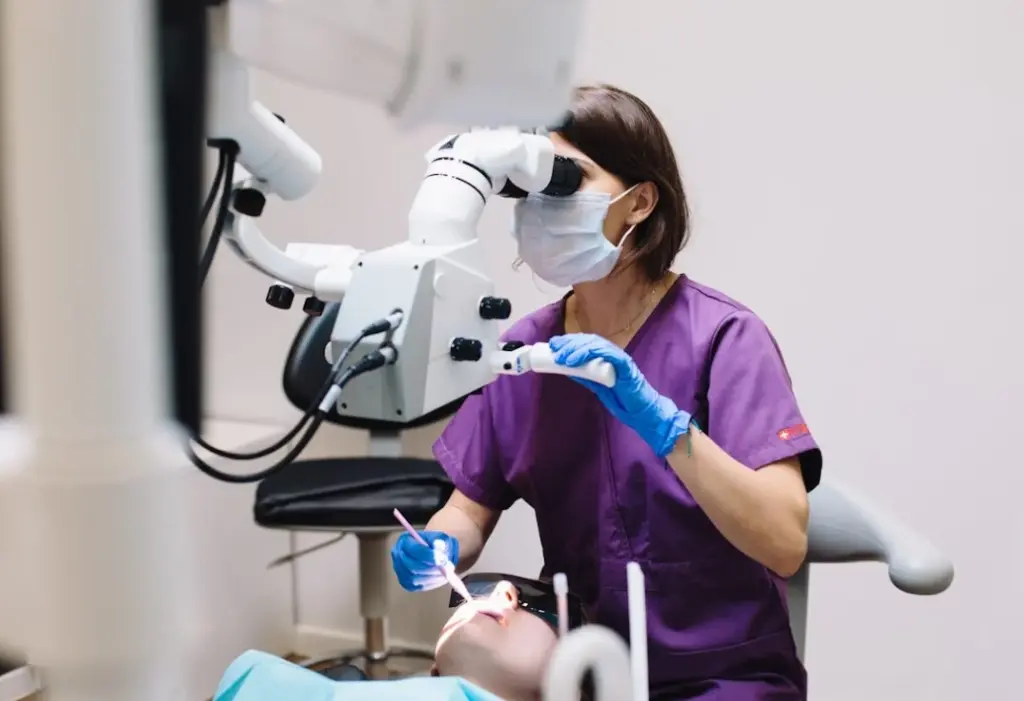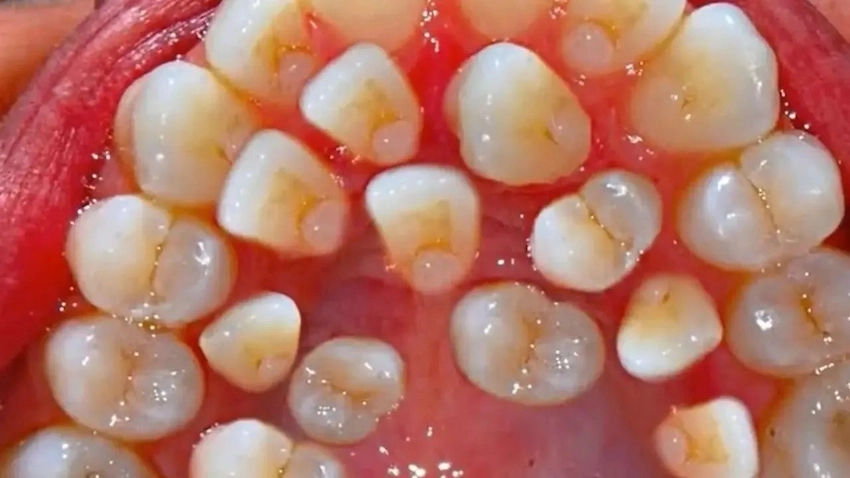Sensitive Teeth During Pregnancy: Causes and Solutions
Sensitive Teeth During Pregnancy

Being pregnant is a very beautiful phase of a woman’s life, which most people cherish greatly because it involves a lot of changes and experiences. These changes and experiences, however, are not solely limited to the physical aspects of the body but also occur within the oral cavity and may prove to be discomforting. One of the most common changes during pregnancy includes that of tooth sensitivity. Some women may notice that during the course of their pregnancy, they may start developing some form of discomfort while consuming hot, cold, or even sweet and sour foods, among others.
If you are one among them, do not be alarmed, as you are not alone. Some studies indicate that sensitive teeth during pregnancy affect many experienced mothers, though less understood than perhaps perceived. If you have been experiencing any discomforting form of tooth sensitivity as an expecting mother while going through your journey, it may be helpful to identify “why” this happens and know that your smile is protected from destruction, and the protections necessary to keep it intact are in place.
Why Do Teeth Become Sensitive During Pregnancy?

Pregnant women undergo various hormonal changes that obviously influence their behaviors, cravings for certain foods or items, as well as develop certain levels of anxiety. However, it might be surprising to learn that these hormones, progesterone and estrogen, can also affect “Gum Tissue”, the mouth’s soft tissues, making them more reactive to inflammation, increasing blood supply to these parts, or changing one’s behavior towards plaque in the mouth, among other things. These changes can occur in women without them even realizing it, leading to dental issues like weakened or suboptimal dentition during pregnancy.
- Pregnancy gingivitis is the swelling, redness, tenderness, and bleeding of the gums that can change the sensitivity of the tooth roots
- Increased amounts of plaque buildup since the acid balance of the mouth changes from high to low
- Wear down of enamel through morning sickness or acid reflux, leading on making a deadened dentition
- Increased sensitivity is derived from swelling within blood vessels and chemicals in the bloodstream that accelerate nerve impulses to enhance sensitivity
At Lema Dental Clinic, with the largest number of dental service providers, and catering to numerous expectant mothers who are in problems related to teeth sensitivity in Istanbul, we clearly recognize the need to handle these conditions with utmost care and the right selection of state-of-the-art and clinically sufficient treatment methods applied by our professional staff.
We believe that providing differently focused dental care can go a long way in ensuring that the mothers and their unborn babies remain healthy and safe throughout the treatment process. Our qualified and trusted practitioners also offer safe anaesthesia and the latest technological improvements and practices, which are, nevertheless, expected within the dental industry today.
Common Triggers for Sensitive Teeth in Pregnancy

- Anything that hurts really badly in the teeth.
- For instance, acidic drinks that include many fruit juices and soda can soften dentin, the sensitive tissue underlying tooth enamel, and thus contribute to increased sensation in your teeth.
- In addition, brushing too hard can worsen the condition of sensitive teeth and may lead to even further pain. Use a gentle technique when brushing your teeth for optimal effectiveness at home.
How to Relieve Tooth Sensitivity During Pregnancy
1. Consistently Care for Your Mouth with Care
Ensure that you brush your teeth thoroughly at least twice per day using either a toothbrush with soft bristles or one that is specifically designed for sensitive teeth, along with any fluoride-based toothpaste without mint flavoring, which might cause irritation to already delicate oral cavities. While brushing, always remember not to brush using excess force since aggressive cleaning techniques can lead to the wearing away of the enamel, which is protective of your teeth.
2. Consider Toothpaste for Sensitivity
There are toothpaste brands made specifically for the relief of sensitivity, which contain ingredients such as potassium nitrate that work by calming down the nerve endings in the teeth, thus providing relief from sensitivity after prolonged use. These products are known for their ability to strengthen the bonds of dentin, hence closing dentinal tubules and lessening the chances of having any painful moments brought about by stimuli from heat, cold, and sugar.
3. Rinse After Morning Sickness
In case of any vomiting episodes, it is recommended to rinse the mouth gently with water or a fluoride rinse on an empty stomach after using a brush or eating anything solid in order to ensure that the effect of acids on the enamel is neutralized. Note that such acid can harm your teeth, for it can eat away some part of the enamel.
4. Avoid Extreme Temperatures in Food and Drink
To avoid further stimulating teeth nerves, meals should be taken when they are warm and drinks either lukewarm or mild. Watch how hot or cold things can get and look out for any signs of discomfort.
5. Stay Hydrated and Limit Sugary Snacks
Drinking water frequently, particularly at the very least two liters daily, is ideal since it clears every crumb away and aids saliva production, which contains chemicals that fight off corrosion to the teeth, hence averting the possibility of sensitivity. High-carbohydrate snacks such as candy and chips are capable of wreaking havoc on your teeth; thus, it would be best if their consumption could be reduced or even avoided altogether.
When to See a Dentist?

The presence of a persistent or increasingly worsening toothache can indicate the need for immediate dental care. In addition, there are pregnancy-safe teeth and gum common treatments which, if taken early, can prevent grave complications later after childbirth. At Lema Dental Clinic, we offer a range of dental services, including periodontal cleanings, tooth fillings, and even oral surgeries that are guaranteed safe for both you and your baby.
Our complete trust in this approach in ensuring the safety of work being carried out and the best among the patients. Make stress-free and good decisions about your dental hygiene during the period of pregnancy. Come first in getting the best out of your baby and you and we will do everything to hold up the title of a professional dentist in this field.
Final Thoughts
Experiencing tooth sensitivity during such a crucial time in any woman’s life, such as pregnancy, can make a pregnant woman’s life so difficult, but it is possible to overcome the condition in order to enjoy the pregnancy and be happy at all times. When women understand and identify the factors that lead to a sense of sensitivity in the teeth, they can take care of their oral health by making the least modifications in their daily activities, such as what they eat and what they do during the day.
Moreover, having the right education and seeking the right care when necessary will help people maintain proper oral hygiene and a perfect set of teeth throughout their pregnancy and even beyond. This way, this time, which calls for patience and changes, can be enjoyed with the ease of a healthy and well-cared-for dental status.
FAQ: Sensitive Teeth During Pregnancy
Hormonal changes, increased blood flow to the gums, and pregnancy-related conditions like gingivitis can expose sensitive areas of your teeth. These changes can make teeth more reactive to hot, cold, sweet, or acidic foods and drinks.
Hormonal changes, increased blood flow, and gum inflammation can expose sensitive areas of your teeth, making them more reactive to temperature and pressure.
Yes. Stomach acids from vomiting can erode enamel, increasing sensitivity to hot, cold, or sweet foods.
Use a soft-bristle toothbrush, sensitivity toothpaste, rinse after acidic foods, and avoid extreme food temperatures.
In many cases, sensitivity decreases after hormonal levels stabilize postpartum, but ongoing care is important to prevent long-term issues. Sensitive teeth during pregnancy explained — discover the causes, common triggers, and safe ways to protect your smile while expecting.




